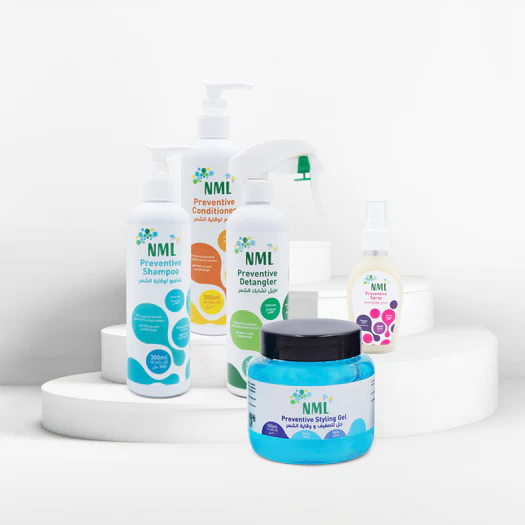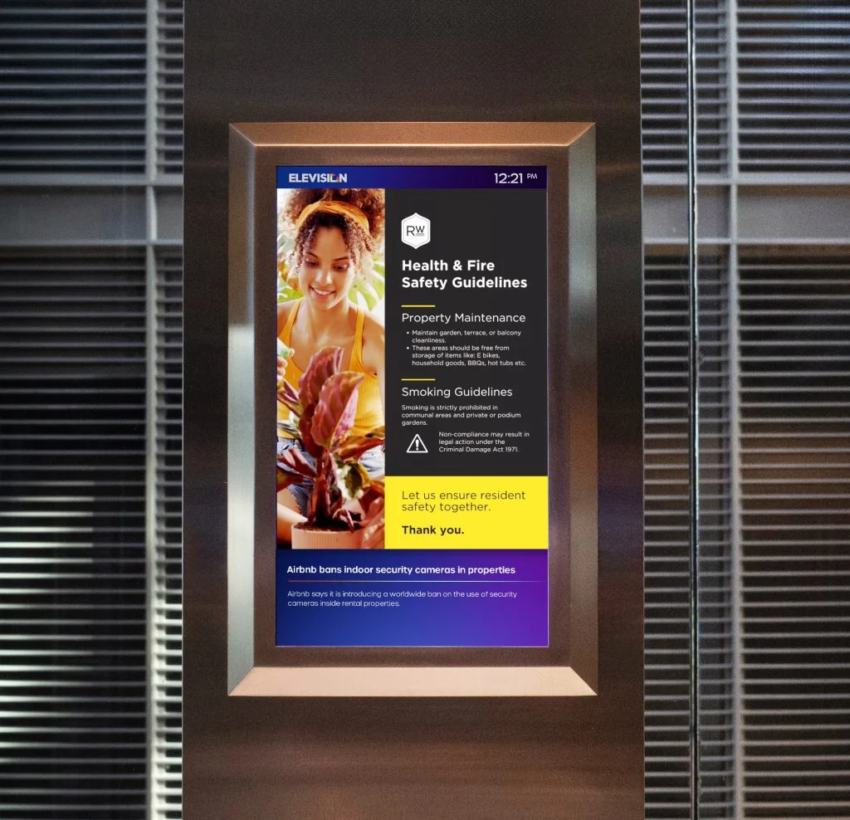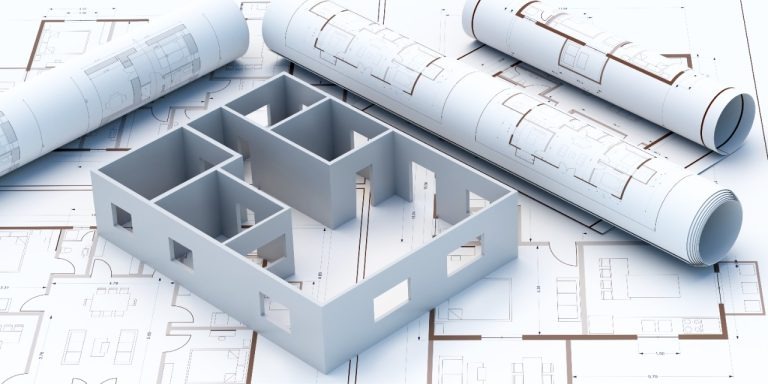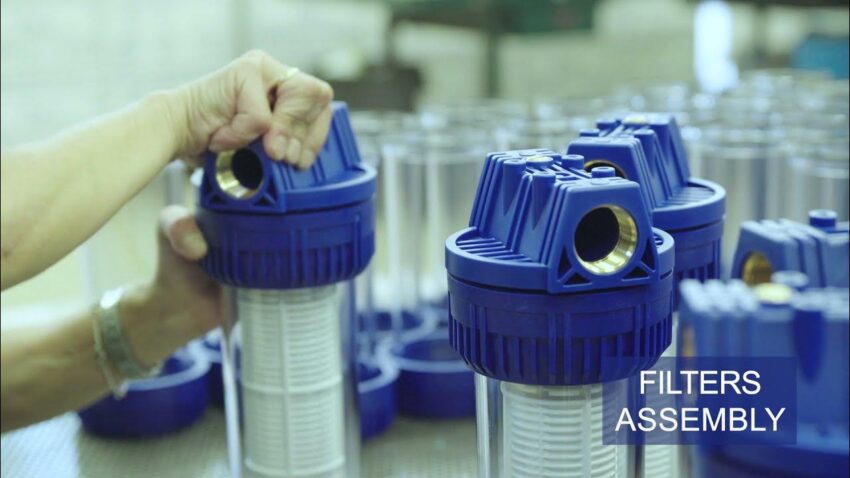A nail salon visit is an opportunity to relax, refresh, and express your personal style. To make the most of your experience, a little preparation can go a long way. Arriving ready ensures smooth service, protects your nails, and helps you leave with the perfect manicure or pedicure. In Dubai, a nail salon Dubai Marina…
When To Call Electrical Maintenance Experts
Our modern world hums with life thanks to electricity. It brightens our homes, warms our spaces, and keeps us linked to everything we love. Yet, this vital network wants regular attention. Catching a flicker or a faint buzz early can prevent a major emergency. For true peace of mind, hiring a trusted electrical maintenance company in…
Features Of A Robot Vacuum Cleaner With Mop That Are Worth Investing In
Life is busy. Between work, family, and trying to relax, cleaning floors often falls to the bottom of the list. What if you had a helper that took care of the mess for you? A robot vacuum with a mopping function is that helper. It’s a smart device designed to keep your floors clean with…
Common Tailored Trouser Alterations and What They Fix
One of the most common alterations for pants is adjusting the length. Many people find that their tailored trousers are either too long or slightly short. Shortening them removes excess fabric that bunches at the ankles, while letting them down can make older trousers wearable again. Taking in the Waist: Sometimes the waistband of trousers…
Turning Old Inventory into Cash with a Warehouse Sale
Old inventory can take up space, tie up money, and slow down your business. Many companies deal with leftover stock that doesn’t sell as expected. One smart way to handle this is through a warehouse sale. From clearing space for new products to just trying to improve cash flow, a Sharjah warehouse sale can help…
How Lice Treatment Ends The Weekly Hair Wars
For many parents, the discovery of lice is a moment of pure dread. It signals the start of an exhausting battle, a weekly ritual of tears, frustration, and strained patience. However, the best lice treatment is the key to declaring a permanent ceasefire in these hair wars. Restoring peace and quiet: The process of combing…
Five Trends in Contemporary Metal Wall Art
Modern homes and offices are always looking for ways to bring in personality and style. One eye-catching way to do this is with metal wall art Dubai. It adds texture, shine, and a bold look that stands out from traditional paintings or prints. As tastes change, artists and designers are finding new ways to work…
How a Reliable Bus Shuttle Service Can Simplify Group Travel
Planning a group trip can be fun but also comes with a few challenges. One of the most helpful ways to keep things simple is by using a bus shuttle service. From family events to school outings, work trips and group tours, this type of transport helps everyone stay together and enjoy the ride. No…
How Lubricant Companies Support Industrial Operations
In factories, plants, and workshops, machines run for long hours every day. These machines need to stay cool, move smoothly, and avoid wear and tear. Lubricants help with all of these tasks. Without the right oil or grease, machines can break down or stop working properly. Lubricant companies in UAE play an important part in…
Common Security Risks And How Consultants Support Businesses
Many businesses face different types of risks related to security. These risks may affect daily operations, data safety, or the overall workplace environment. By identifying such risks early, businesses can take steps to manage them. External support is often used to bring in fresh ideas and checks. This is where security consulting services are often…
Safety Tips For Handling Lab Equipment And Consumables
How can you ensure safety when handling lab equipment and consumables? Laboratory environments often involve hazardous materials and complex instruments, so proper safety measures are essential. By following specific protocols and using equipment responsibly, you can minimise risks. If you’re looking for reliable tools and safety products, consider checking with lab equipment suppliers near me…
5 Compelling Reasons to Invest in Off-Plan Apartments Today
If you’re thinking about buying property, off-plan apartments are an option worth considering. These are homes that are still being built, giving buyers the chance to purchase early, often at a better price. Here are five reasons why now might be a good time to invest in off plan apartments in Dubai. 1. Lower Prices…
Best Age To Get Dental Braces For Kids And Teens
When is the right time for a child or teen to start wearing dental braces? This is a common question for many parents. Timing matters because teeth and jaw growth change with age. While each child is different, there are some general signs and age ranges that dentists often look at when deciding the best…
Why Brands Are Outsourcing Their Reels Production
Short-form video content like Instagram Reels has become a cornerstone of effective social media marketing. However, creating high-quality, engaging Reels consistently can be time-consuming and resource-intensive. This is why many brands, from startups to established corporations, are turning to professional reels video production service in Dubai. If you’re still handling Reels in-house, here’s why outsourcing…
The Role of Parks and Green Spaces in Urban Planning
Cities are often seen as concrete jungles; full of buildings, roads, and traffic. But parks and green spaces play an important role in making cities healthier, happier, and more sustainable. Urban planners recognize their importance and work to integrate them into city designs. Here’s why parks and greenery are considered of utmost importance in urban…
Why UGC Is the Secret Ingredient for Authentic Audience Growth
User-generated content (UGC) has become a driving force in marketing strategies for brands across industries. It involves using content created by real customers, such as reviews, photos, videos, and posts, to promote products or services. Leveraging a reliable UGC content platform can empower brands to connect with their audience on a deeper level, fostering trust…
How Acoustic Suspended Ceiling Tiles Improve Soundproofing and Aesthetics
Acoustic suspended ceiling tiles are widely used in modern architecture to provide excellent soundproofing and enhance the overall aesthetics of a space. They are versatile, easy to install, and come in a variety of designs, making them an ideal option for both commercial and residential buildings. They Absorb Sound One of the main benefits of…
A Guide To Hiring An Audio Visual Company
Audio visual (AV) companies specialize in providing services such as sound, lighting, and video for events, conferences, and other live productions. Finding the right audio-visual (AV) company can greatly influence the success of your event, from smooth presentations to engaging visuals. Here’s what you need to know about hiring an audio visual company: Take time…
What’s The Cost Of Hiring An Influencer Management Agency?
Hiring an influencer management agency can significantly elevate a brand’s influencer marketing efforts, but the cost of doing so varies based on several factors. From campaign complexity to the experience of the agency, the costs associated with influencer talent management agency can fluctuate. Understanding these costs helps brands make informed decisions about their influencer relationship…
What Are The Best Foods To Include In A Lunch?
A well-balanced lunch is essential for maintaining energy and focus throughout the day. Selecting the right foods can improve your overall health and well-being. Here’s a guide to some of the best foods to include in a nutritious and satisfying lunch in Dubai. Lean proteins: Incorporating lean proteins into your lunch is vital for muscle…
Why Support After Birth Matters – The Role Of Home Nursing
The period following childbirth can be both exhilarating and overwhelming. New parents often face a myriad of challenges as they steer the demands of caring for a newborn while recovering from pregnancy and delivery. This is where the role of home nursing services Dubai becomes important, providing essential support that can significantly impact the well-being…
How To Measure Success In Elevator Media Advertising
Elevator media advertising has become a powerful tool in modern marketing, offering brands an opportunity to engage with captive audiences in a unique, enclosed environment. However, measuring success in this medium requires specific strategies tailored to the nature of elevator advertising. Explore here key methods to evaluate the effectiveness of elevator media advertising campaigns. Audience…
Step-By-Step Process For Synthesizing Polyalkylene Glycol (PAG)
Polyalkylene glycol (PAG) is a high-performance synthetic lubricant known for its excellent thermal stability, water solubility, and low toxicity. It is widely used in various industrial applications, including compressors, gearboxes, and metalworking fluids. The process of synthesizing PAG involves polymerizing alkylene oxide monomers, primarily ethylene oxide (EO) and propylene oxide (PO). Below is a step-by-step…
Steps To Evaluate Signboard Manufacturers Effectively
Choosing the right signboard manufacturers in Saudi Arabia is important for ensuring that your signage meets both your aesthetic and functional needs. Whether you’re launching a new business or updating existing signage, the manufacturer you select will play a significant role in the final product’s quality and effectiveness. Here’s a streamlined guide to help you…
Stretching Safely – Who Should Avoid Stretching And Why
Stretching is often lauded for its numerous benefits, including improved flexibility, reduced muscle tension, and improved physical performance. However, stretching isn’t suitable for everyone. Certain individuals should avoid stretching to prevent exacerbating existing conditions or causing new injuries. Here’s a guide on who should be cautious about stretch downtown Dubai and why. Individuals with acute…
How To Improve Your Personal Status With A Lawyer’s Guidance
Improving your personal status, whether in professional, social, or financial realms, can often be improved with a lawyer’s guidance. Legal expertise can provide clarity, protection, and strategic advice to help you achieve your goals. Explore here key ways guidance from a personal status lawyer in UAE can improve your personal status: Career advancement: A lawyer…
Buying The Best Accessories For Your Kitchen
Kitchen accessories are an essential part of any well-equipped kitchen. They not only make your cooking experience easier and more efficient, but also add style and functionality to your space.Here’s a guide to help you select the right kitchens UAE accessories for your culinary space: Identify your needs: Before purchasing kitchen accessories, assess your cooking…
Exploring The Purpose Of Will In Dubai
In Dubai, as in many jurisdictions globally, a will serves a key role in estate planning and ensuring that an individual’s assets are distributed according to their wishes after their death. Understanding the purpose of wills in Dubai involves steering specific legal frameworks and cultural considerations unique to the region: Asset distribution according to personal…
Effective Marketing Strategies For A Construction Company
Marketing strategies for a construction company in Middle East play a vital role in establishing brand visibility, attracting new clients, and maintaining a competitive edge in the industry. Explore here effective strategies tailored for the construction sector: Develop a strong online presence: In today’s digital age, having a robust online presence is essential for reaching…
7 Reasons Why A RO System Is Essential For Every Home
A Reverse Osmosis (RO) system is an essential addition to any household, providing numerous benefits that contribute to health, convenience, and environmental sustainability. Find here compelling reasons why every home should have RO system Dubai. Superior water quality: An RO system effectively removes contaminants such as lead, chlorine, pesticides, nitrates, and bacteria from your drinking…






























